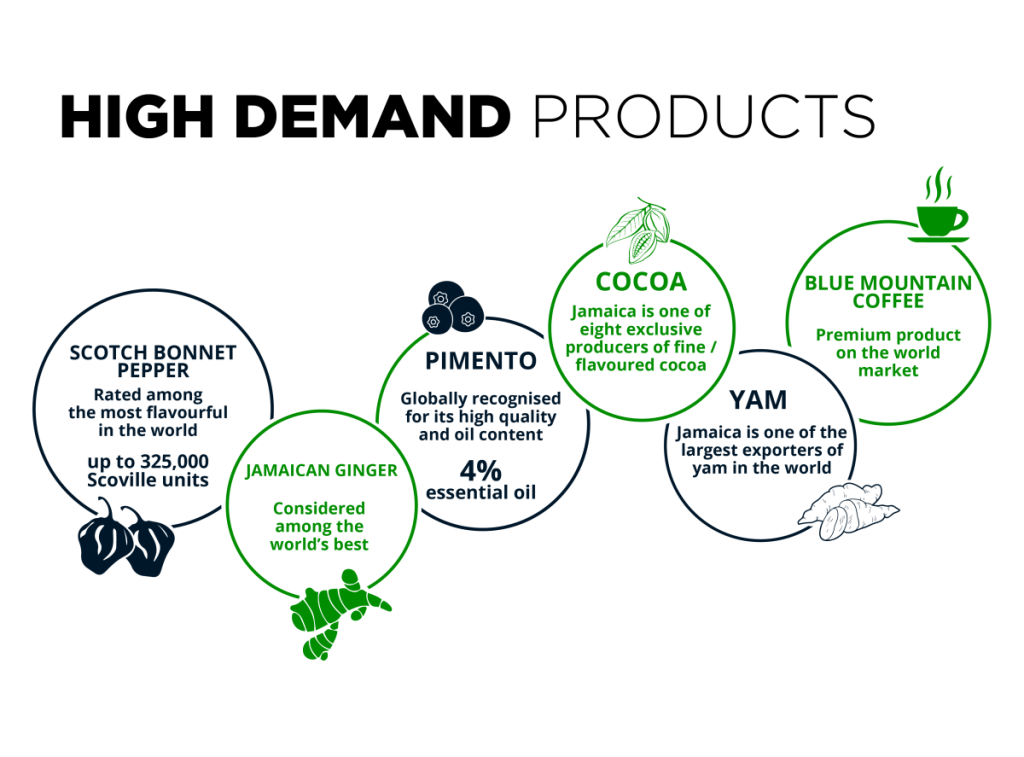Economic Overview
The Jamaican economy is heavily dependent on services, which accounts for more than 70% of GDP. The country derives most of its foreign exchange from tourism, remittances, and bauxite/alumina. Earnings from remittances and tourism each account for 14% and 20% of GDP, while bauxite/alumina exports have declined to less than 5% of GDP.
Jamaica’s economy has grown on average less than 1% a year for the last three decades and many impediments remain to growth: a bloated public sector which crowds out spending on important projects; high crime and corruption; red-tape; and a high debt-to-GDP ratio. Jamaica, however, has made steady progress in reducing its debt-to-GDP ratio from a high of almost 150% in 2012 to less than 110% in 2017, in close collaboration with the International Monetary Fund (IMF).
The current IMF Stand-By Agreement requires Jamaica to produce an annual primary surplus of 7%, in an attempt to reduce its debt burden below 60% by 2025.
Economic growth reached 1.6% in 2016, but declined to 0.9% in 2017 after intense rainfall, demonstrating the vulnerability of the economy to weather-related events.
Key sectors in Jamaica
The country is best known for premium crops such as the world famous Blue Mountain Coffee, fine/flavour cocoa, high quality pimento and ginger, also rated among the best in the world.
Other important sectors are:
- Animal Husbandry
- Fishing
- Forestry
- Mining

Taxes in Jamaica
An amendment to Corporate Income Tax became effective January 1, 2013. The corporate income tax rate structure was modified as follows:
a) Tax charge for regulated companies is now 331/3%, unless otherwise specified;
b) Tax charge for un-regulated companies is now 25%;
c) Building Societies special rate is 30% (as before);
d) Life Insurance Companies (i) is 15% (as before);
e) Life Insurance Companies (ii) is 3% (as before).
The Minimum Business Tax of JMD 60,000 which was introduced in 2014 and which is payable in two Equal Instalments of JMD 30,000 each payable 15th June and 15th September has been amended. In respect of individuals, the threshold has been increased to five million (JMD 5m), up from the previous three million dollars (JMD 3m). This does Not Apply to Companies.
Provisions have also been made for, any company incorporated under the Companies Act for not more than twenty-four months, registered charities, international organizations subject to the Diplomatic Immunities and Privileges Act and individuals with gross revenue below JMD 5m are exempt from paying the Minimum Business Tax.
Investment Opportunities
Jamaica’s diversified market economy has accommodated over US$6 billion in foreign direct investments (FDI) over the past 10 years, mainly attributable to expanding investments in Business Process Outsourcing (BPO) and Tourism. Investment opportunities also available in traditional sectors like Agribusiness, Mining, Energy and Manufacturing, as well as exciting areas like Logistics, Film and Animation.
To the global investor community, Jamaica is the third largest English-speaking country in the Western Hemisphere offering:
- Well-developed infrastructure with world-class highways, airports and seaports
- Robust telecommunications infrastructure with built-in redundancy
- Vibrant and stable democracy with elections held every five years
- Strong air connectivity – Frequent flights to major gateways worldwide
- Impressive sea connectivity – #1 transhipment port in the region
- Near shore advantage – Located within a 4-hour flight radius of 500 million people
